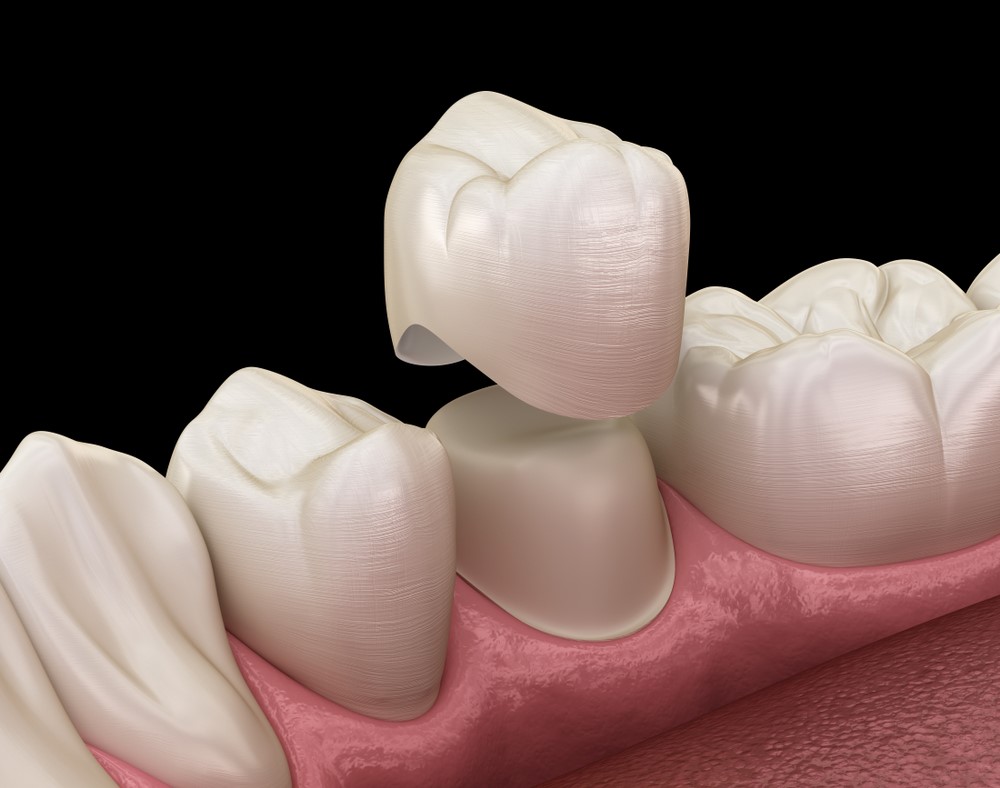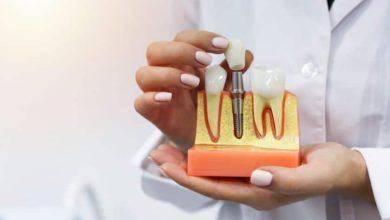Do Dental Crowns Hurt? Discover the Truth about Crown Pain!

Dental crowns may cause mild discomfort but should not be painful. Dental crowns are a common dental procedure used to restore damaged or weakened teeth.
They are custom-made prosthetic caps that cover the entire tooth, providing strength, functionality, and an aesthetically pleasing appearance. While the process of getting a dental crown usually involves numbing the area with local anesthesia, some discomfort or sensitivity may be experienced afterward.
This discomfort typically subsides within a few days. It is essential to maintain good oral hygiene practices to prevent any complications and ensure the longevity of the crown. Overall, dental crowns should not cause significant pain and are a beneficial solution for restoring and protecting teeth.
– Common Causes Of Crown Pain
Many people may wonder if dental crowns hurt. While the placement of dental crowns is generally a painless procedure, there are a few common causes of crown pain that individuals may experience.
| Common Causes of Crown Pain |
| Decay or Damage to the Tooth |
| Nerve or Pulp Inflammation |
| Improper Fit or Adjustment Issues |
If there is decay or damage to the tooth underneath the dental crown, it could cause pain and discomfort. This can occur if the underlying tooth structure was not properly treated before the crown placement.
Nerve or pulp inflammation is another common cause of crown pain. If the pulp inside the tooth becomes irritated or infected, it can result in discomfort after the crown is placed.
Improper fit or adjustment issues can also lead to pain. If the crown is not properly fitted to the tooth or if the bite is not correctly aligned, it can cause discomfort when chewing or biting down.
– Potential Risk Factors For Crown Pain
There are several potential risk factors for experiencing pain after getting dental crowns:
- Poor oral hygiene: Neglecting regular brushing and flossing can lead to infections and gum disease, which may cause discomfort around the crown area.
- Teeth grinding or clenching: Habitually grinding or clenching your teeth can put excessive pressure on the crown, leading to pain and possible damage.
- Pre-existing dental conditions: Having underlying dental problems, such as decay or a cracked tooth, can contribute to crown pain.
- Allergic reactions: In rare cases, individuals may be allergic to the materials used in their dental crowns, resulting in discomfort and inflammation.
It is essential to maintain good oral hygiene, address teeth grinding issues, and address any existing dental conditions to minimize the risk of experiencing pain after getting dental crowns.
– General Tips For Minimizing Discomfort
When getting dental crowns, it is natural to wonder if the process will be painful. However, with some care and good oral hygiene practices, you can minimize discomfort. Taking over-the-counter pain relief medications can help manage any pain or sensitivity after the procedure. It is also important to maintain good oral hygiene by brushing twice a day and flossing regularly to prevent any additional discomfort. Avoiding hard or sticky foods can prevent any damage or dislodgment of the crowns, which can cause pain. Additionally, visiting your dentist regularly for check-ups and cleanings can help ensure the longevity of your dental crowns without any discomfort. By practicing these tips, you can have a comfortable dental crown experience.

Credit: smilestories.co
– Communication With Your Dentist
Communication with your dentist is crucial when it comes to addressing any pain or discomfort experienced with dental crowns. It is important to report any pain or discomfort you may be feeling after the crown placement, as this could indicate a problem or issue that needs attention. By seeking prompt professional advice, you can ensure that any potential complications are addressed promptly. This involves discussing your symptoms with your dentist and providing them with a detailed account of the pain or discomfort you are experiencing.
During your conversation, it is important to inquire about possible treatment alternatives that could alleviate any pain or discomfort you are experiencing. Your dentist may be able to recommend different options that suit your specific needs. By actively engaging in this dialogue, you can work together with your dentist to find the best solution that minimizes any discomfort or pain associated with dental crowns.
– Importance Of Proper Dental Care And Maintenance
Proper dental care and maintenance are essential for ensuring the health and well-being of your teeth and gums. Regular dental check-ups and cleanings are important in detecting and preventing any dental issues before they become more serious. During these visits, your dentist will thoroughly examine your teeth and perform a professional cleaning to remove plaque and tartar buildup. Maintaining good oral hygiene habits is also crucial in preventing dental problems. This includes brushing twice a day with a fluoride toothpaste, flossing daily, and using antiseptic mouthwash. Additionally, it is important to protect your teeth from trauma or injury. This can be done by wearing a mouthguard during sports activities or using a nightguard if you grind your teeth while sleeping. By following these practices, you can ensure a healthy and pain-free smile.
– Potential Long-term Solutions For Crown Pain
Root Canal Treatment: In some cases, crown pain may be due to an underlying dental condition such as an infection or decay in the tooth root. This can cause discomfort and sensitivity in the crowned tooth. To address this, a dentist may recommend a root canal treatment. During this procedure, the infected pulp inside the tooth is removed and the root canal is cleaned and sealed to prevent further infection and alleviate any associated pain.
Replacement of Ill-fitting Crowns: Sometimes, crown pain may be caused by an ill-fitting crown. If the crown is too high, it can put excess pressure on the surrounding teeth, leading to discomfort. In such cases, the dentist may need to adjust the crown or replace it altogether to ensure a proper fit and alleviate any pain.
Treating Underlying Dental Conditions: In some instances, crown pain may be a result of an underlying dental condition, such as gum disease or a cracked tooth. Treating these conditions is essential to addressing the pain. This may involve procedures such as deep cleaning, gum treatment, or restoring the cracked tooth. By addressing the underlying cause, the discomfort associated with the crown can be resolved.
Frequently Asked Questions For Do Dental Crowns Hurt
How Long Does A Tooth Hurt After A Crown?
Typically, tooth pain after a crown may last for a few days to a few weeks depending on the individual. However, if the pain persists or becomes severe, it is important to consult your dentist.
How Painful Is Getting A Crown On Your Tooth?
Getting a crown on your tooth can cause some discomfort, but it is usually manageable with local anesthesia. The pain is minimal and temporary during the procedure, and you may experience sensitivity or soreness afterward.
What Is Worse A Crown Or Root Canal?
A root canal can be worse than getting a crown. With a root canal, the tooth pulp is removed, causing discomfort. However, a crown is an artificial tooth covering, which may cause sensitivity but is less invasive. Ultimately, it depends on the individual situation.
Does Getting A Crown Hurt More Than A Filling?
Getting a crown may cause more discomfort than a filling, but the pain level varies for each individual.
Conclusion
Dental crowns are a common restorative dental procedure that may cause some discomfort. However, advancements in technology and techniques have minimized pain during the process. It’s important to communicate any concerns with your dentist to ensure proper pain management. Remember, a healthy smile can greatly improve your quality of life, so don’t let fear of pain prevent you from receiving necessary dental treatments.




